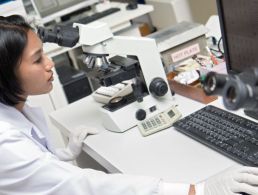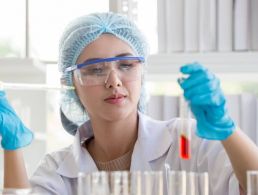NIBRT’s Killian O’Driscoll discusses how the pandemic affected biopharma training and what prospective candidates can expect.
Many careers have changed over the last 18 months, with many people taking their first career steps, getting promoted or switching careers all from the comfort of their own home.
But the life sciences and pharma industry in particular has undergone massive changes because of Covid-19, not only on the research and development side but also on the talent acquisition side.
Earlier this week, we spoke to Ipsen’s Liza O’Brien about the increased interest in pharma careers as a result of the pandemic.
“We have witnessed what scientific minds can achieve in such a short period of time, as several vaccines have been developed, tested and approved over the last 18 months. This has contributed towards saving millions of lives,” she said.
However, while it has been an exciting time to start a career in pharma, restrictions that have been in place due to the pandemic have not only changed the way we work, but the way we train.
Ireland’s National Institute for Bioprocessing Research and Training (NIBRT), based in Dublin, aims to support the growth and development of the biopharmaceutical industry through education and training.
The site has state-of-the-art biotech manufacturing facilities, but when Ireland was forced into various levels of lockdown and pandemic-related restrictions, how did this affect the organisation’s training?
Killian O’Driscoll, director of projects at NIBRT, said it was possible to keep the facility open to its industry clients with strict safety precautions in place.
“However, the impact of social distancing requirements and the lack of international travel required us to make fundamental changes to our delivery model,” he said.
“For example, the amount of lecture training that we delivered via online platforms such as Microsoft Teams and Zoom increased significantly.”
In addition, NIBRT benefited from the timely release of its online academy in January 2020, which gave it a platform to deliver online training to its global client base. O’Driscoll said the NIBRT Online Academy (NOA) now has more than 10,000 users in more than 60 countries.
“The NOA platform will continue to develop at pace and is a key part of NIBRT’s training solutions. We are also seeing good progress the development of immersive training solutions (such as AR, VR, etc) but cost of development and lack of standardisation remain barriers to the adoption of this technology.”
While interest in biopharma careers has increased, O’Driscoll said the demand for talent has also accelerated due to the pandemic, with recruitment mainly moving online.
“Face-to-face events are expected to return strongly in 2022. Nonetheless, the online recruitment still provides companies with an opportunity to showcase the careers within their organisations.”
Earlier this month, NIBRT held its annual careers event online with more than 700 attendees from around the world hearing from 13 major industry players in Ireland. While the way companies are recruiting has changed, O’Driscoll said the core competencies that employees need in science and engineering remain the same as always.
“However, there is an increasing demand for employees with digital skills, in particular for those with data analytics skills,” he said.
“There are now wonderful opportunities throughout the life sciences sector with a significant and growing demand for talent. Many companies are now running excellent graduate recruitment and development programmes.
“A good science or engineering degree provides is often a prerequisite to starting a career in the sector and preferably some experience. There are many successful hires from the Springboard+ programmes. As always showing enthusiasm, a willingness to learn and professional skills will differentiate the successful applicant.”




